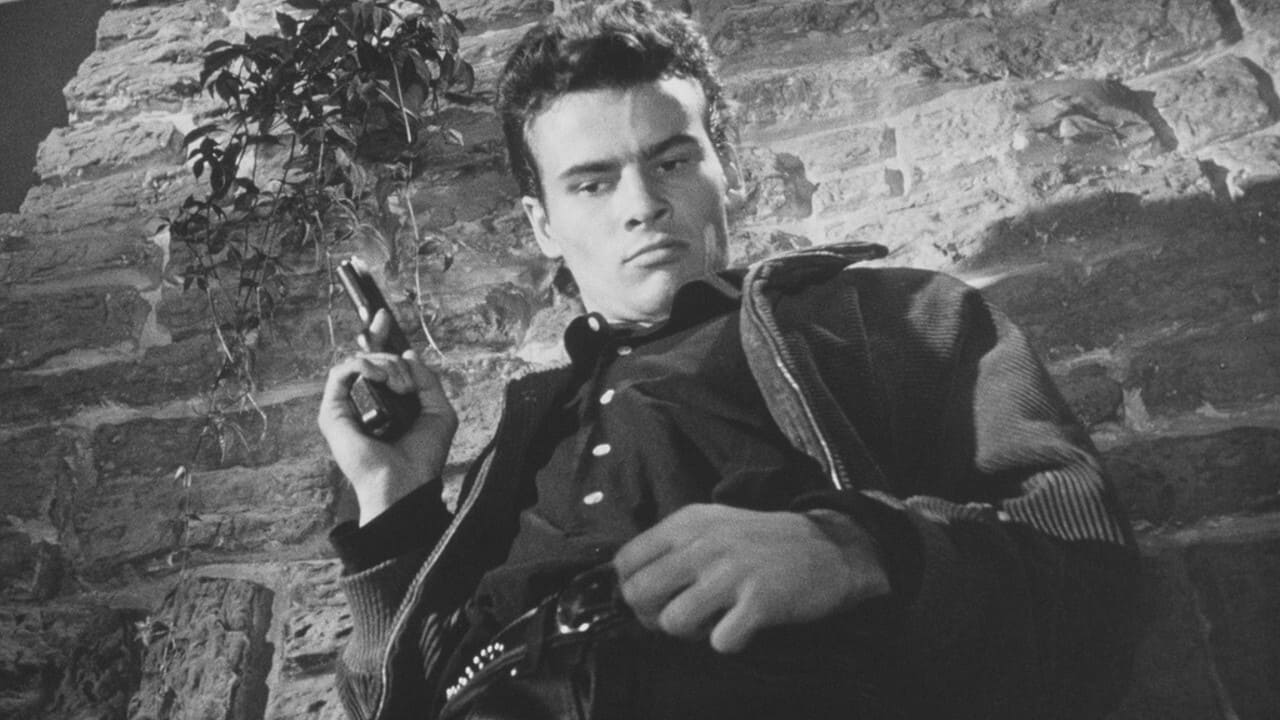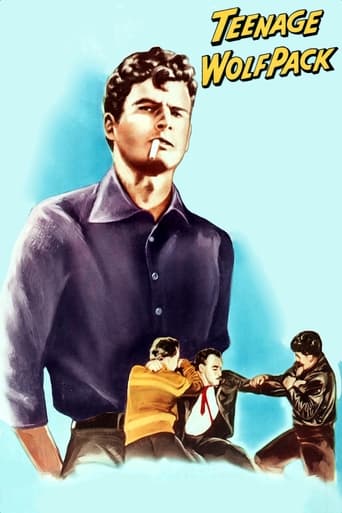



Instant Favorite.
The movie is wonderful and true, an act of love in all its contradictions and complexity
View MoreGreat story, amazing characters, superb action, enthralling cinematography. Yes, this is something I am glad I spent money on.
View MoreBlistering performances.
'Die Halbstarken' don't have much in common with the theme and influence of the roughly contemporary James-Dean-Film 'Rebel without a cause', only that the main-persons of both films are attractive youths, who wear similar clothing. And: The Intention of this German film to handle the same Topic is recognizable.But James Dean, Sal Mineo and Natalie Wood play sensible youths, who run into an emotional crisis while in contact with their surroundings (so triggering the Youth-Revolution against narrow structures),while Horst Buchholz, Karin Baal and the others are merely youthful criminals, who could have appeared as well in films from, say, the 1930's.James Dean in 'Rebel' may seem emotionally unstable, but he is never brutal, like Horst Buchholz in 'Die Halbstarken' (who, above all, acts very dumb). It looks to me, in comparison, as if Nicholas Ray, director of 'Rebel', wanted to describe an emotional situation and a thereby starting Rebellion, while 'Die Halbstarken' wanted to warn against this Rebellion, according to the opinions of the grown-ups of that time. The German film wanted to demonstrate an immaturity and malignity of the so-called 'Halbstarken', and so seems to be a moralizing anti-youth-rebel-story, and therefore wholly different from 'Rebel without a cause'.
View More"Die Halbstarken" or "The Hooligans" is a German 90-minute movie from 1956, so this one has its 60th anniversary this year. It scored a win for director and writer Georg Tressler at the German Film Awards and his two lead actors also received some nice attention with their nominations. Tressler was not as young anymore at this point as one may think judging from the award he won as he had already made a whole lot of short films before that, but it was his feature film debut and for that it was really impressive. Also for lead actors Horst Buchholz and Karin Baal, this film was easily among their most career-defining performances. For almost the entire film, we think Buchholz' is the main antagonist, but at the very end we find out the truth, something that was occasionally indicated throughout the movie. As for the reference in my review's title, it is very much obvious how there are many parallels to the very successful "Rebel Without a Cause". Buchholz is clearly channeling Dean (and Brando as well) in terms of his brute role here and the scenario with two young men (one strong, one rather weak) and a woman who has a major impact on both their lives is obvious. But that's not a bad thing as the film still offers enough in terms of originality to be wort seeing in his own right. I also liked that it felt extremely realistic from start to finish despite being pretty showy on some occasions. The atmosphere is interesting and this can certainly seen as what wild new film looked like in Germany, maybe even as an epitome, when it comes to the 1950s. I recommend the watch. Thumbs up for one of the better works from what is generally considered not exactly a strong decade for German film.
View MoreI was quite surprised that this was such a good film. Horst was not only an underrated actor, but extremely photogenic. That said, he comes across so well as a thuggish kid. He and his co-stars are terrific in this film.I was not happy with the ending, however, as we never find out if he survives, something that annoys me to no end. Finish the film, guys! I had heard from someone that the film was based on real life events, but I don't believe that. Even so, a similar story could have happened in some form, or another.I highly recommend this one, if for no other reason than to see young Buckholz in his prime.
View MoreMost of German and Austrian mainstream cinema of the fifties was light musical comedy, sentimental drama or "Heimatfilm" (escapist love stories, set on the countryside - the Alps, Black Forest or Lüneburger Heide - glorifying natural environment, folklore and the "virtues" of the plain and simple country folk). There was hardly a realistic view of (West-)German society during the years of the "Economic Miracle". Young author Will Tremper did not like that sentimental stuff. Obviously influenced by Hollywood teen dramas ("The Wild One", "The Blackboard Jungle", "Rebel Without a Cause") he and director Georg Tressler in 1956 realized Germany's first look on juvenile delinquency, a film that is now regarded a classic of German post-war cinema. This one is hard, raw and realistic, omitting any false sentimentality or romanticism. Out of all German film made in the fifties it is my personal number one! The cast is fantastic, above all the lead triangle: Horst Buchholz as Freddy the leader of the pack, barely 16-year-old Karin Baal as "Sissy", a teenage "femme fatale" (Don't mind her name, she has absolutely nothing in common with the Romy Schneider character!) and Christian Doermer as Freddy's ambivalent younger brother Jan. The rest of the gang are roughly characterized and do a great job as well. Paul Wagner and Viktoria von Ballasko as Freddy's and Jan's parents as well as Stanislaw Ledinek as the Italian running an ice-cream parlor also give great performances. The storyline is as follows - In an indoor swimming pool Jan meets his brother Freddy who had moved out after a quarrel with his father, an embittered tyrant. Jan knows that his parents need 3,000 Deutschmarks (quite a lot in those days) to pay their debts. Jan asks Freddy who pretends to have a good job if he could help them. Freddy says yes, while preparing a mail car robbery that would not only allow him to help his parents but to fulfill his dream - buying a Buick Cabriolet. Jan, who seems to smell something fishy, nevertheless accompanies his brother... No spoilers, but young Baal has a great scene as the "bad girl". The film was shot on location in West Berlin and has nearly everything you are longing for - dark alleys, petticoats, leather jackets, American cars, dances, sex and crime. The only thing missing is Rock 'n' Roll. The jukebox only plays conventional jazz music. But all in all this is of minor importance. In 1957 "Die Halbstarken" could be seen - in a dubbed version, titled "Teenage Wolfpack" - in Britain and the US as well. After "Die Halbstarken" Tressler made many films and TV productions until the 1990s. Tremper continued as a screenwriter and director of nonconformist films. He passed away in 1998. While Buchholz became an international Star and died in 2003, Baal and Doermer have made their own careers in German Film and Television. They are still (2006) around and can frequently be seen on TV.
View More